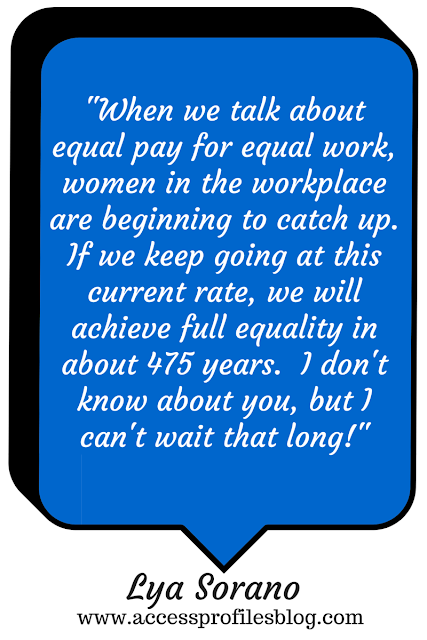 |
| Created by Kimberly Kline, API |
When life gives you lemons, then make lemonade! There is a lot of wisdom in suggesting that we turn our negatives into positives.
But did you know that it is completely apropos when it comes to losing a customer?
While no company relishes the idea of losing a client, there are definite lessons we can take away from the experience. The key is to turn it around and use what we learn.
This is especially true for a Small Business.
As a small business owner, you understand that each customer is even more crucial to your success than they are for a big company. Losing even one can make a difference to your bottom line.
So, when one of your clients leave (and most businesses will experience this at one time or another), you may be tempted to think you are a failure.
That is not a productive way to think!
Instead, you first have to realize it is not the end of the world. You can go on.
And then you need to take a hard look at what made them leave, what you can learn from it, and what changes you need to make to lessen the chance of it happening again!
Tips to Help You Keep Your Customers! “Tweet This”
Reasons Your Clients May Leave,
and
What You can Learn from Them:
Do you completely forget about your clients in between jobs? Or do you only contact them when you want to sell them something?
While your initial sale may have been an impulse buy or a “let’s give it a try”, people only keep buying from companies with whom they feel a connection. Without that, customers will leave.
If this is where you dropped the ball, then you can turn things around and learn a lot from this experience.
And the most important lesson is how vital it is to stay in contact and build a relationship with your customers.
In between sales, share useful information that will help your clients in their own lives or businesses. This can be articles you have written or even relevant information from others.
Yes, you can keep them in the loop about your own new products or services ~ but that shouldn’t be the only time you are in touch.
The stronger you build your customer relationship, the less likely they will leave.
Your Clients Don’t Feel Valued
Many businesses make the mistake of focusing on luring in new customers. They offer big discounts or even something free for first time buyers. This makes your existing customers feel left out.
Instead, you need to remember to reward them for their loyalty. Build in incentives for repeat business. Feature special “customer loyalty” days with discounts just for them.
You also need to remember that customers buy from people, not from companies. Don’t lose the personal touch. Focus on your customer service. Build that important relationship that keeps your customers coming back.
While we all need to build our clientele, the key is to not forget about our existing customers in the process.
 |
| Created by Kimberly Kline, API |
Your Only Selling Point is Low Prices
Low prices aren’t everything. Yes, all our clients want to save money. But if you are not providing quality, then all is lost.
A great deal can lure in the first time buyer, but it will not result in repeat sales. If your quality is not up to par, you will lose a customer.
And remember, many people believe that “you get what you pay for”. Underselling yourself can backfire.
Discover the 3 factors you need to consider before setting your prices in “Find it Difficult Setting Your Prices? You are not Alone!”.
You Don’t Know Your Competition
If you don’t know what your competition is offering, then you can easily lose your customers to them before you know it.
Instead of keeping your head in the sand, study them. Find out what they are doing, and find a way to do it better.
Or, you can find a niche they are not servicing and specialize. Understanding what drives you and recognizing the needs of your customers will help you hone in. This tactic is perfect for small businesses.
And most importantly, filling a gap in the market will help you set your business apart.
Learn more about niche marketing in “How to Find Your Small Business Niche”.
You Don’t Know Your Value
If you don’t know what is new or different about what you offer, how do you expect your clients to?
Be clear about what your product or service will do FOR your client. Be ready to show how it will solve their problem, make their life easier, or even help them or their company be more productive.
You also need to be transparent about what You bring to company / client relationship. Be accessible. Be your brand. Make sure your customers feel your passion about your business.
Not having this conviction and vision in your business will turn away customers.
But what happens when, no matter what you do, a customer still leaves?
Then it might be time to evaluate whether or not you are better off!
Many of us go into business believing that “the customer is always right”. While this belief can serve us well, it can also keep us under the thumb of toxic clients.
They are the ones with unreasonable demands and expectations. They are also the ones that occupy the majority of our time and energy ~ for very little pay off.
When that happens, it is sometimes better for all involved to simply let them go.
The lesson to learn here is that some customer relationships should not be fixed.
You can read more about Knowing when to Let Go of Difficult Clients here!
As a company, especially a small business, our clients are integral to our success. They are what keeps us going and what drives us to improve. And that is the way it should be.
So when we find ourselves losing those customers, it can rattle our confidence. Instead of letting it consume us, we need to take a step back and learn from it.
Finding out where we went wrong,
and fixing what we can,
should be our ultimate goal.
And then we will have forged
our own path to success!
Authored by

Need help with your own Small Business? Contact Me Now!
I can help you with your hiring and blogging needs.

Find out more about My Services and
get answers to your FAQ too!








